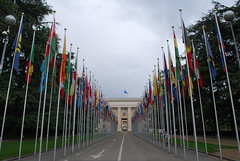I’m not much of a political commentator and this post is driven by a need to make sense of what’s going on in the wider world, Brexit and beyond. Plus, y’know, jetlag ‘creativity.’ I’ll also caveat this as a #firstworldproblem; I appreciate that there are other people playing in far less pleasant democracies than I. nonetheless…
…here’s my theory.
CIA incursion agents work to drive revolutions and destabilise geopolitical environments by stirring up societal dissent, often specifically anti-governmental in focus, but in some cases between separate (militant) groups.
The behaviour of our National leaders in recent months – in the UK and the US – makes MUCH more sense if you think of some of the key personalities as enemy insurgents, looking to destabilise the Western powers ahead of an impending invasion.
BREXIT: a major act of social destabilisation

The UK is one of the most stable, tolerant societies in the western world. That said, there has been a seething undercurrent of discontent at the disparity of wealth in our society – harnessed, ironically, by a bunch of aristocratic elitists, graduates of Dulwich College and Eton College, Oxford and beyond. This has been channeled, thanks in no small part to the hateful rhetoric of Nigel Farage, into a strong anti-European (and anti-foreigner in general) sentiment. Boris Johnson, one eigth Turkish, married to a half-Indian/Pakistani barrister specialising in – of all things – discrimination law, dials into the anti-immigrant sentiment in a savvy move to deliver himself a seat of power. Which, amazingly, he somehow gets – despite what some people saw as Cameron’s killing blow of handing the Article 50 decision to a successor. In the weeks since the Brexit vote happened, Johnson has become Foreign Secretary (perhaps a savvy move by Teresa May to sidestep responsibility for the impending and inevitable failure to deliver on the Brexit promises?) and started to dial back on the Brexit rhetoric he was bandying about only weeks before. Meanwhile, tolerant Britain has seen a 57% rise in reports of hate crime and high profile people of colour have faced up against verbal abuse that sets the country back 40 years of social development.
There is no question that Britain was in many regards broken before Brexit; the disparity between the top 0.1% and the rest of society, and the continued push by recent Governments to take money from the many and give it to the few (or at least, not take responsibility for redistributing wealth better)… well, it needed fixing. But for it to be tackled via Brexit, possibly the most socially divisive event in Britain in living memory, can only be the act of alien incursion. Indeed, perhaps Corbyn’s implosion at Labour (and the Labour party’s own ham-fisted attempts to rid themselves of him) is also the result of alien meddling.
A liberal racist at the helm of the Republican party?
Despite the insanity in Britain, perhaps things are set to get even worse in the US… Trump – perhaps best thought of as an alien incursion agent with extreme learning disabilities – is in the process of using hateful rhetoric to try to win the US presidential race. And yet – his policy platform is liberal in many regards. If he wins, the US could find itself imploding socially as the Republican party implodes politically as Trump’s political ideology runs counter to the party line. In many ways, the ultimate strategy for softening the US against a coming alien hammer blow.
The world over, this toxic sentiment is spreading
The hateful rhetoric being used as a catch-all for National economic problems seems to be spreading. It’s not the problem, but it seems much easier to blame foreigners than it is to acknowledge the limitations of capitalism and the challenges of implementing policies designed to deliver more effective social welfare and equality across citizen demographics. Ironically, this is pushing us – globally – further to the right, to people and parties traditionally worse at evening the economic odds across their citizens… and spiralling us into a worse position. I find it hard to believe that a conservative Prime Minister will genuinely fight “burning injustice” – especially given Mrs May’s voting history (against laws for equality and human rights; for reducing housing benefit, against disability allowances, for a reduction in spend on welfare benefits; against bankers’ bonus tax, against mansion tax, etc.). Her voting history has some positive moments too, so perhaps she’s running counter to the alien insurgency theory after all, but I’m reserving judgement until I see it happen.
Optimism?
I’m trying to be optimistic and focussing on the positive ways I can participate in our Citizen democracy in the UK. It’s proving hard to stay optimistic (my friend Chris has compiled lots of reasons to be pessimistic!). I would love to hear actual, positive steps people have seen emerge to address the crushing social and economic divide, the impending demise of universal healthcare, the social havoc caused by the Brexit vote itself, and beyond. It’s actually slightly more plausible (and more palatable) to believe that all this stuff is a consequence of alien insurgency… but sadly I suspect the reality has a significantly larger measure of political and economic self-interest at its core.









